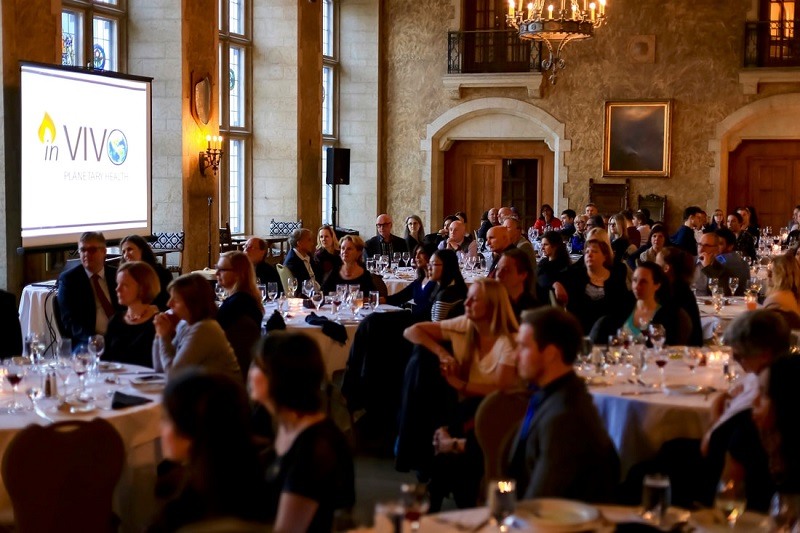
The inVIVO Planetary Health network (formerly WUN inFLAME network) announced speakers and topics for inVIVO 2019, held from 15 to 17 May 2019 in Detroit.
President of the network Professor Susan Prescott (UWA) says, “This is just a taste of the exciting program. Already being described as the “Woodstock” of planetary health, it is no exaggeration to say this is ‘next level’ and our best meeting ever. We welcome ideas and suggestions for speakers.”
Register for the conference. If applicable, please send your abstract by 28 February 2019. Contact the inVIVO team here.
Confirmed speakers:
- David Katz (renowned expert in public health and nutrition, Yale, USA):
Food for our future: Taking responsibility at the cross-roads of personal and planetary health - Marco Springmann (expert on sustainability, Oxford University):
The EAT-Lancet Commission on Food, Planet, Health - Matilda van den Bosch (University of British Columbia, Editor, Oxford Textbook of Nature and Public Health):
Exiting the Anthropocene: Nature based solutions for personal and planetary health - Janet Jansen (Chief Scientist for Biology in the Biological Sciences Division, United States Department of Energy):
Microbiomes in transition: Impact of climate change on microbial systems in the environment - Jeffrey Bland (President, Personalized Lifestyle Medicine Institute, Seattle, WA):
Systems Biology and ‘Omics revolution – connecting personalised medicine to planetary health - Trevor Hancock (Public Health Physician. First leader of the Green Party of Canada):
Beyond science and technology: Creating Planetary Health needs less ‘head stuff’, more social engagement and more ‘heart, gut and spirit’ stuff - Michelle Kondo (Scientist, USDA-Forest Service. Expert on urban-nature
interventions):
Nature-Based Interventions for mental health, Disease, Violence and Injury Prevention in Urban Areas - Robert O. Wright (Founding director of the Mount Sinai Institute for Exposomic Research):
Next-level exposome research: getting to the unhealthy roots for improving personal and planetary health
- Martin Breed (Restoration Ecology, Healthy Urban Microbiome Initiative, Adelaide):
Urban habitat restoration provides a human health benefit through microbiome rewilding - Aki Sinkkonen (University of Helsinki. Expertise in ecology and human health):
Soil and plant contact improve diversity of human skin and gut microbiota: nature-based immunomodulatory interventions - Susan Erdman (MIT, Internationally recognised for studies of microbes and inflammation):
Microbes, oxcytocin and immune resilience: benefits for physiology and behaviour in the aging process - Chris Lowry (University of Colorado. Expert in microbes and neural inflammation):
M. vaccae prevents stress-induced neuroinflammation and microglial priming - Daniel E. Baxter (University of Ottawa. Expert on nature relatedness):
Nature Relatedness as a Basic Human Psychological Need - Rebecca Knickmeyer (Michigan State University, integrating neuroimaging with omics technology):
Infant gut microbiome and variations in functional brain activity—implications for development and behaviour - Tony Reames (University of Michigan, Expert on Energy Justice):
Energy Injustice, poverty and health disparities – Local solutions with global implications - Jeremy (Jer) Clifton (University of Pennsylvania. Expertise on psychology of primal beliefs and collective action):
Mindsets for a healthy planet: how primal world beliefs influence personal well-being and collective action - Anthony Ong (Cornell University, Expert in developmental psychology):
Emodiversity, inflammation, and significance of positive emotion on all aspects of health - Michelle Cardel (University of Florida, Expertise in nutrition, health disparities and obesity):
Poverty, inequity and caloric burden – how both reality and perception drive unhealthy food consumption - Jean-Claude Moubarac (University of Montreal, Department of Nutrition. Expertise in cultural anthropology):
The impact of ultra-processed foods on person, place and planet – and what we do about it